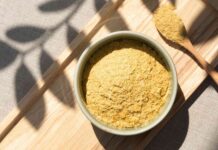What Are Kidney Stones?
Kidney stones are hard, crystalline structures that form in the kidneys. They develop when there’s an excess of certain minerals in the urine, causing them to crystallize and aggregate. These stones can vary in size, from as small as a grain of sand to as large as a pea. The formation process is influenced by several factors, including diet, fluid intake, and overall health.
The most common type of kidney stone is calcium stones, which are typically composed of calcium and oxalate. Less commonly, people may develop uric acid stones, struvite stones, or cystine stones. The type of stone a person develops can affect the recommended treatments and preventive measures.
Symptoms and When to Seek Medical Help
The presence of kidney stones often doesn’t cause symptoms until the stone begins to move within the kidney or starts its journey down the urinary tract. When symptoms do appear, they can be severe and include:
- Severe pain in the back or side (flank): This is often the most noticeable symptom.
- Pain that radiates to the lower abdomen and groin:
- A feeling of pressure in the body:
- A burning sensation when urinating:
- Feeling restless or needing to be still:
- Blood in the urine (hematuria):
- Nausea and vomiting:
- Fever and chills if an infection is present:
It’s crucial to recognize these symptoms and seek medical attention promptly, especially if experiencing severe pain or signs of infection. Early diagnosis and treatment can prevent complications and improve outcomes.
Can Certain Foods or Drinks Cause Kidney Stones?
Dietary factors play a significant role in kidney stone formation. While no single food causes stones in everyone, certain dietary choices can increase the risk for susceptible individuals.
- Caffeine and Sugar: Consuming large amounts of caffeine or sugar-sweetened beverages can contribute to dehydration, increasing the concentration of stone-forming substances in the urine. While not a direct cause, these factors can exacerbate the problem.
- Whey Protein: High intake of whey protein, particularly in supplement form, has been suggested by some studies as potentially increasing the risk of calcium oxalate stones in certain individuals. However, the evidence is not conclusive, and protein intake should be balanced as part of a healthy diet.
- Dietary Changes for Prevention: Making informed dietary adjustments is key to preventing kidney stone recurrence. These changes might include modifying sodium intake, fluid consumption, and specific food choices based on stone type.
Dietary Strategies for Kidney Health
Whether you’re dealing with kidney stones or aiming to prevent them, diet is a critical component of management.
- Preventing Recurrence: For those who’ve had kidney stones, specific dietary changes can significantly reduce the risk of recurrence. This often involves increasing fluid intake (especially water), moderating sodium, and adjusting calcium and oxalate intake based on the type of stone formed.
- Managing Chronic Kidney Disease (CKD): For individuals with CKD, dietary recommendations focus on reducing the workload on the kidneys. This typically involves limiting sodium, phosphorus, and sometimes potassium intake, depending on the stage of CKD. Staying well-hydrated is also essential.
- Foods to Consider: While some foods like beets, chocolate, and spinach are high in oxalate and may need to be limited in specific contexts (like for those prone to calcium oxalate stones), overly restrictive diets aren’t always necessary or beneficial. Balance is key, and recommendations should be personalized.
Diagnosis and Treatment
When kidney stones are suspected, doctors use various methods to confirm the diagnosis and determine the appropriate treatment.
- Diagnostic Methods: Common diagnostic tools include urine tests to check for crystals or infection, blood tests to assess kidney function and mineral levels, and imaging studies like X-rays, ultrasound, or CT scans to visualize the stones.
- Treatment Options: Treatment depends on the size, type, and location of the stone, as well as the patient’s symptoms. Small stones may pass with increased fluid intake and pain management. Larger stones might require medical intervention, such as medications to facilitate passage, shock wave lithotripsy, ureteroscopy, or percutaneous nephrolithotomy.
Key Takeaways for Kidney Health
- Hydration is Paramount: Drinking plenty of water is one of the most effective ways to prevent all types of kidney stones by diluting urine.
- Diet Matters: Being mindful of dietary factors, including calcium, oxalate, sodium, and protein intake, can help manage risk.
- Early Intervention: Recognizing symptoms and seeking medical help promptly is crucial for effective treatment.
- Personalized Approach: Kidney health management, including dietary recommendations, should be tailored to the individual’s specific condition and stone type.
Understanding kidney health, recognizing symptoms, and making appropriate dietary and lifestyle adjustments are vital steps towards preventing kidney problems and maintaining overall well-being. If you suspect you have a kidney issue, consult a healthcare professional for accurate diagnosis and guidance






























